
Iranian-German with no patience for lazy arguments. Executive Chairwoman of @Zerainstitute — a think tank countering antisemitism and extremism 🎗️
6 subscribers
How to get URL link on X (Twitter) App


 [2/11] Once a Vice journalist, @matthewcassel has become a full-time anti-Israel propagandist, smuggling his agitprop into the BBC, NYT, and The Guardian. His latest film, Our Genocide, masquerades as a documentary. In reality, it is a sly exercise in omission, distortion, and demonization.
[2/11] Once a Vice journalist, @matthewcassel has become a full-time anti-Israel propagandist, smuggling his agitprop into the BBC, NYT, and The Guardian. His latest film, Our Genocide, masquerades as a documentary. In reality, it is a sly exercise in omission, distortion, and demonization.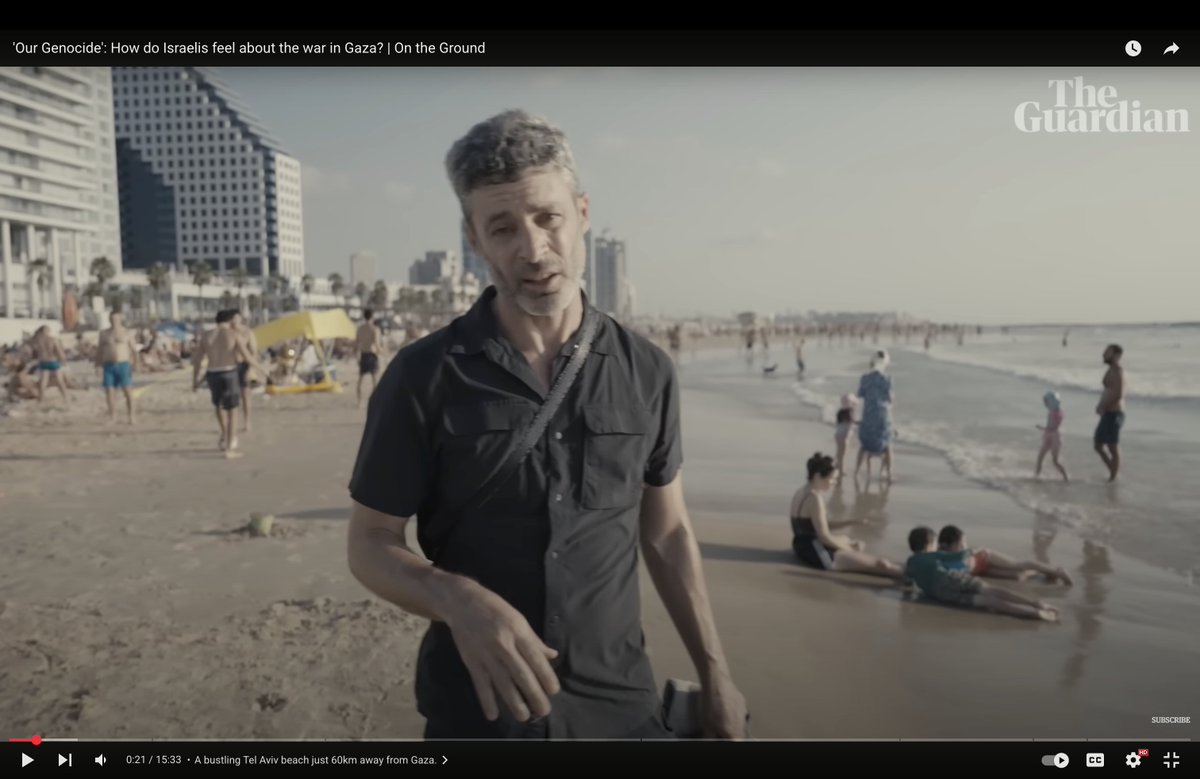
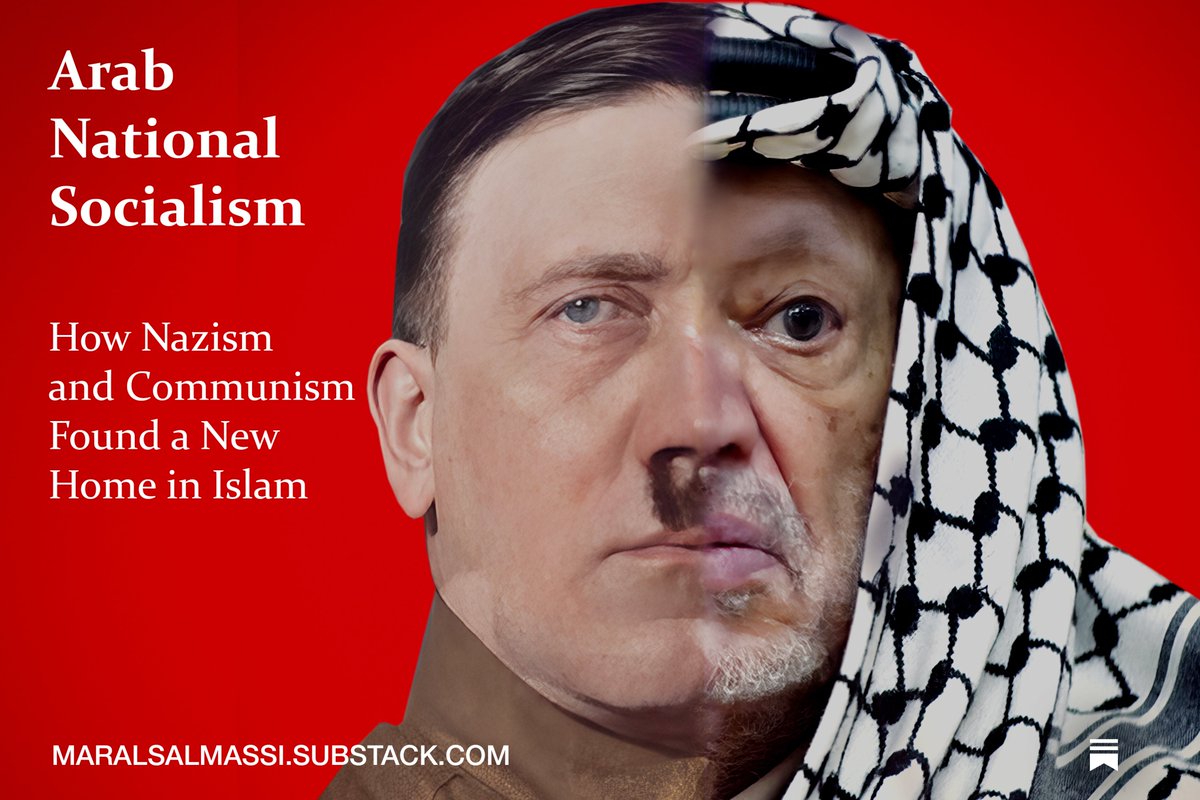
 [2/9] Some ideologies behave like parasitic spirits. They do not vanish when their hosts are destroyed; they hover, waiting for a body already weakened by humiliation, hatred, or hunger for revenge. German National Socialism should have died with Hitler in his bunker, just as Communism should have faded with the implosion of the Soviet Union. Instead, their ghosts crossed into the Arab world — a region primed by wounded pride, dreams of lost empire, and the supremacist certainties of Islam. Amin al-Husseini and Gamal Abdel Nasser opened the door, and Yasser Arafat became the perfect vessel. The parasite adapted to its new host, mutating Islam's doctrinal antisemitism into Arab National Socialism — the same demons from Berlin and Moscow, now speaking Arabic and waving the pan-Arab "Palestinian" flag instead of the red-framed swastika.
[2/9] Some ideologies behave like parasitic spirits. They do not vanish when their hosts are destroyed; they hover, waiting for a body already weakened by humiliation, hatred, or hunger for revenge. German National Socialism should have died with Hitler in his bunker, just as Communism should have faded with the implosion of the Soviet Union. Instead, their ghosts crossed into the Arab world — a region primed by wounded pride, dreams of lost empire, and the supremacist certainties of Islam. Amin al-Husseini and Gamal Abdel Nasser opened the door, and Yasser Arafat became the perfect vessel. The parasite adapted to its new host, mutating Islam's doctrinal antisemitism into Arab National Socialism — the same demons from Berlin and Moscow, now speaking Arabic and waving the pan-Arab "Palestinian" flag instead of the red-framed swastika.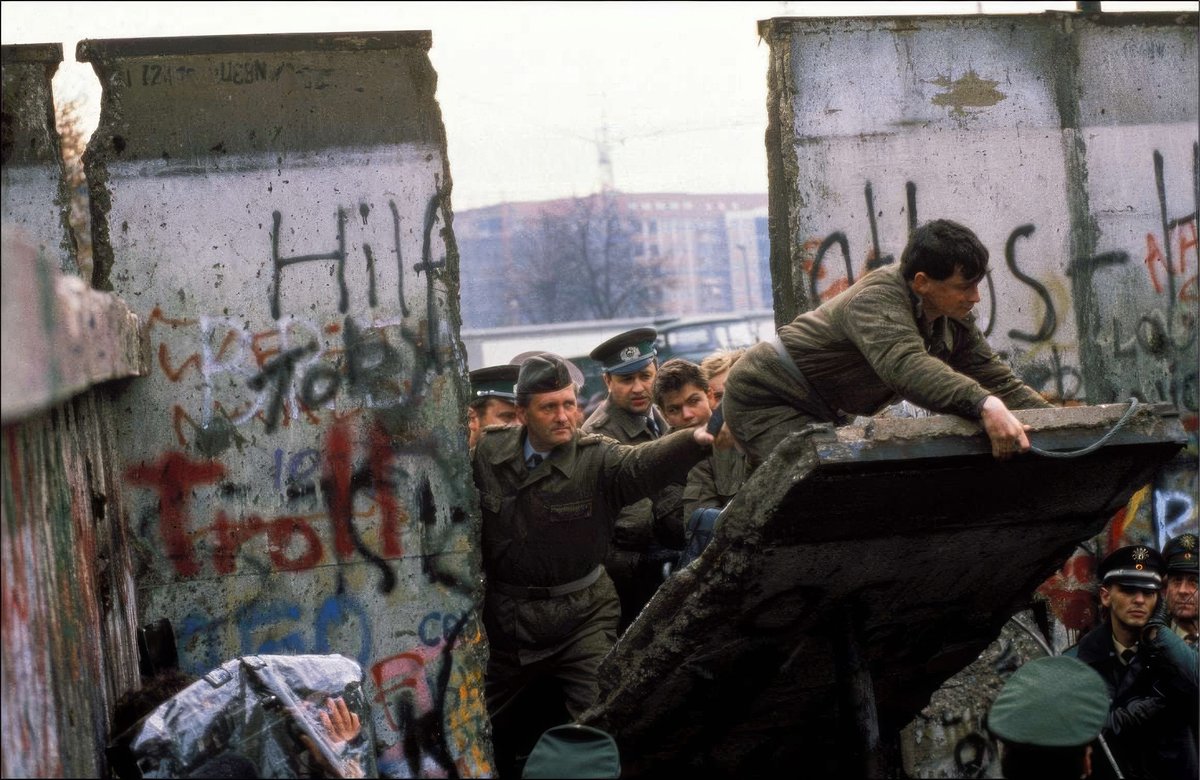
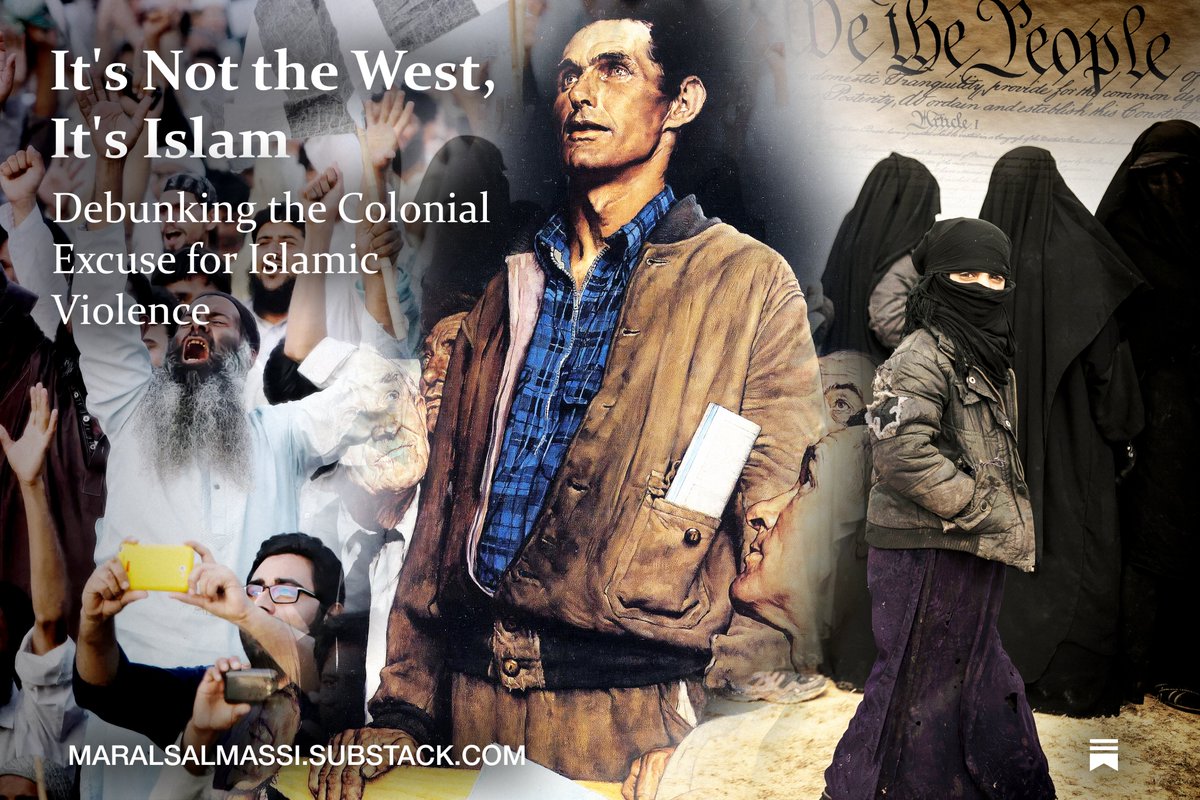
 [2/13] We are told—almost ritually—that Islam is merely misunderstood. Yet its sweeping claim to govern everything from diet to sex to the afterlife rests on two deeply problematic foundations: the idea that Muhammad was the perfect man, and that the Quran is the perfect book. If the Quran is infallible and final, why does it produce such radically different interpretations—from quietist scholars to bloodthirsty jihadists? Why is the Islamic world so persistently trapped in cycles of violence and so uniquely resistant to reform? These aren't abstract theological puzzles. They are civilizational and moral failures—and they demand reckoning.
[2/13] We are told—almost ritually—that Islam is merely misunderstood. Yet its sweeping claim to govern everything from diet to sex to the afterlife rests on two deeply problematic foundations: the idea that Muhammad was the perfect man, and that the Quran is the perfect book. If the Quran is infallible and final, why does it produce such radically different interpretations—from quietist scholars to bloodthirsty jihadists? Why is the Islamic world so persistently trapped in cycles of violence and so uniquely resistant to reform? These aren't abstract theological puzzles. They are civilizational and moral failures—and they demand reckoning.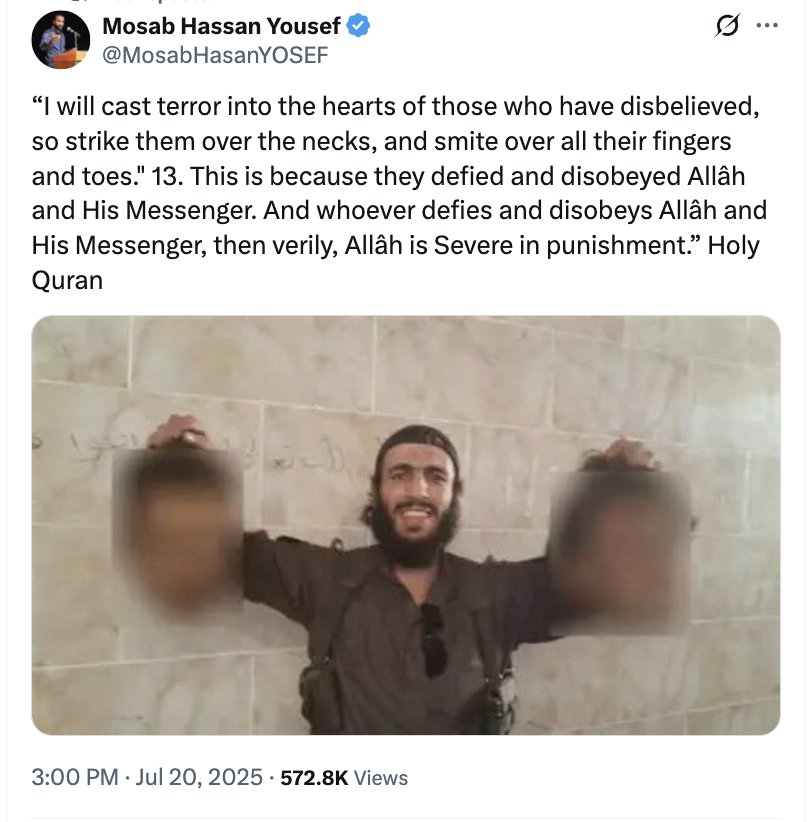

https://twitter.com/MedvedevRussiaE/status/1936765645498257620
 [2/7] On one hand, he mocks the U.S. strike as ineffective, suggesting Iran wasn’t truly harmed. On the other hand, he threatens nuclear escalation: “Countries may supply nuclear warheads to Iran.”
[2/7] On one hand, he mocks the U.S. strike as ineffective, suggesting Iran wasn’t truly harmed. On the other hand, he threatens nuclear escalation: “Countries may supply nuclear warheads to Iran.”
 [2/10] Qatar's support for terrorism and its efforts to destabilize the West has become so conspicuous that even Donald Trump — a man who made plenty of deals with Doha — publicly called them out for funding terrorism, explicitly referencing their support for Hamas, Al-Qaeda affiliates, and the Muslim Brotherhood. This wasn't Trump's first warning shot. During the Gulf diplomatic crisis in 2017, he sided with Saudi Arabia, the UAE, Bahrain, and Egypt in their isolation of Qatar, stating that Doha had "historically been a funder of terrorism at a very high level."
[2/10] Qatar's support for terrorism and its efforts to destabilize the West has become so conspicuous that even Donald Trump — a man who made plenty of deals with Doha — publicly called them out for funding terrorism, explicitly referencing their support for Hamas, Al-Qaeda affiliates, and the Muslim Brotherhood. This wasn't Trump's first warning shot. During the Gulf diplomatic crisis in 2017, he sided with Saudi Arabia, the UAE, Bahrain, and Egypt in their isolation of Qatar, stating that Doha had "historically been a funder of terrorism at a very high level."

 [2/7] A History of Extremes
[2/7] A History of Extremes

 [2/9] Claiming to be more than just a spiritual path, Islam explicitly defines itself as a perfect, final, and all-encompassing truth. Sura 3:7 states that only Allah knows the true interpretation of its verses—effectively closing the door to human reinterpretation. Sura 5:3 states that Islam is a perfected religion. Sura 11:1 describes the book as flawless in wisdom and clarity, and Sura 2:2:16 denies the human ability to judge. These verses assert divine authorship and inaccessibility; thus, the Quran cannot be altered, questioned, or reinterpreted. It is a closed loop impervious to reform.
[2/9] Claiming to be more than just a spiritual path, Islam explicitly defines itself as a perfect, final, and all-encompassing truth. Sura 3:7 states that only Allah knows the true interpretation of its verses—effectively closing the door to human reinterpretation. Sura 5:3 states that Islam is a perfected religion. Sura 11:1 describes the book as flawless in wisdom and clarity, and Sura 2:2:16 denies the human ability to judge. These verses assert divine authorship and inaccessibility; thus, the Quran cannot be altered, questioned, or reinterpreted. It is a closed loop impervious to reform.
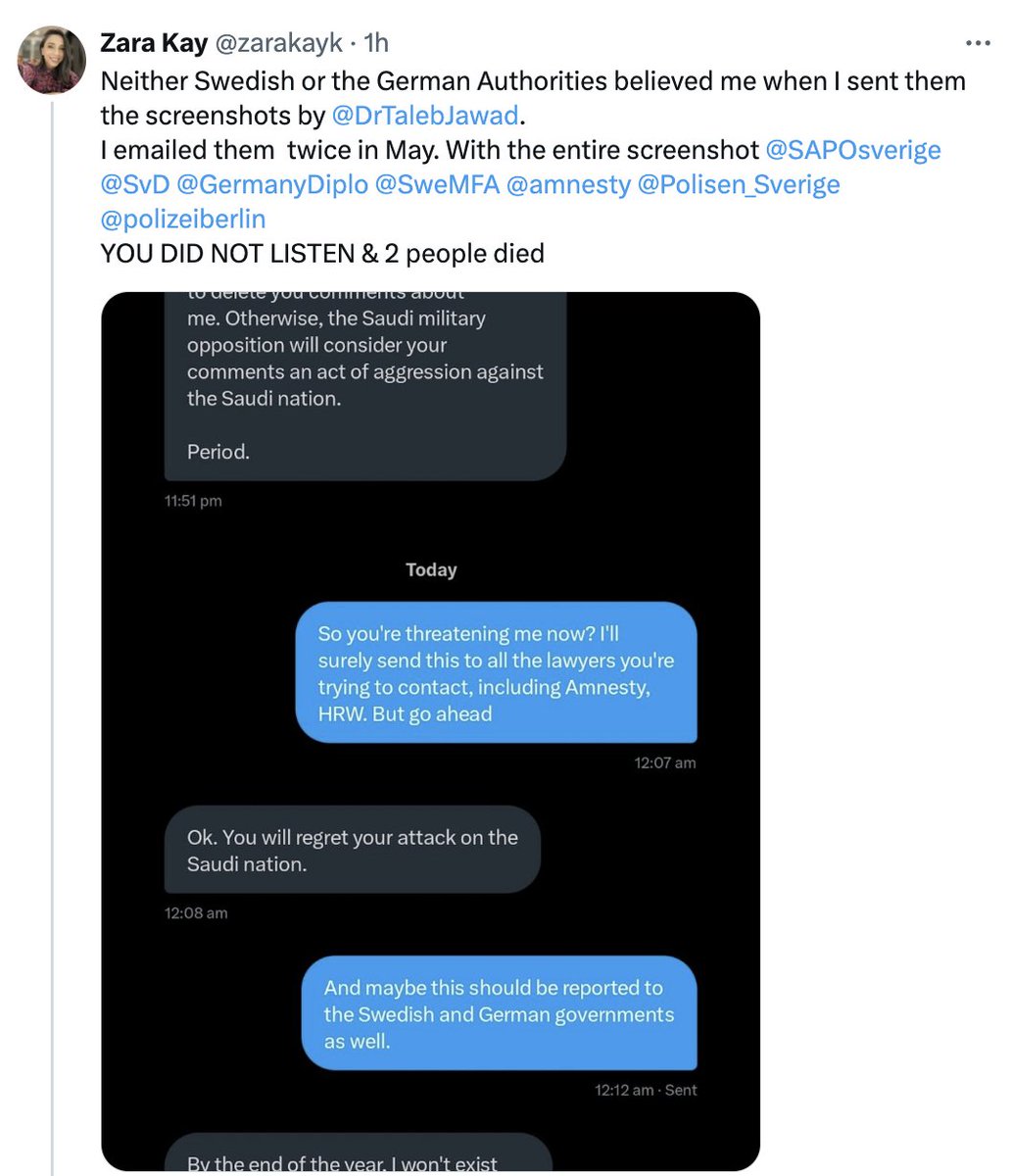
https://x.com/NiohBerg/status/1870353000855728546